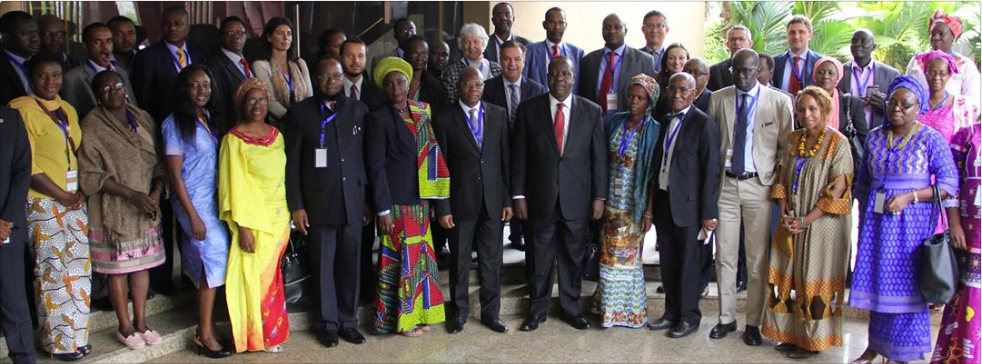For three days, 90 representatives of 25 African countries, including seven state ministers, dedicated their time, knowledge, and skills to find ways to keep home-grown school feeding programmes advancing in Africa . The III Regional Workshop in Home-Grown School Feeding took place in Nairobi from 29 to 31 May. The first version of the study on the status and impacts of school feeding in African Union member states was the main discussion topic. After discussing the findings and recommendations of the study, participants agreed on a set of recommendations to be incorporated into national school feeding strategies.

The study’s results were presented to build ownership and get feedback from member states and key partners attending the workshop, in order to validate the study and agree on incisive recommendations to be presented to the African Union heads of states in July. The workshop was organized in a way to facilitate and promote experience sharing towards strengthening national school feeding programmes linked to local food production as a key instrument for enhancing access, retention and performance in education in Africa. This is in line with the Continental Education Strategy for Africa, the African Union Agenda 2063 and the Sustainable Development Goals.
The study is the result of the partnership between the WFP Centre of Excellence against Hunger and the African Union and was conducted by the Economic Policy Research Institute.
Commitment
At the opening session, the African Union commissioner for Human Resources, Science and Technology, Dr. Martial De-Paul Ikounga, stated, “We cannot fulfill the goals of the 2063 Agenda and the vision of the African Union if our kids are not attending schools. I hope the minister of Education of Kenya will be our main advocate to engage other African ministers of Education and of other sectors in the school feeding efforts in Africa.”
“We cannot fulfill the goals of the 2063 Agenda and the vision of the African Union if our kids are not attending schools”.
Dr. Fred Okeng’o Matiang’i, Cabinet Secretary of the Ministry of Education, Science and Technology of Kenya, made a bold speech calling on each country’s responsibilities towards children and praising the importance of cooperation among developing countries. “As Africans, the foremost responsibility we have is to feed our children and raise them responsibly. If we want to be respected, it is time for us to speak with each other about how to feed and educate our children, instead of letting others tell us what to do. Five decades after independence, we cannot discuss how our children will be fed by others, it is our responsibility. The 2063 goals cannot be achieved if kids are hungry and out of school”, he said.
“Five decades after independence, we cannot discuss how our children will be fed by others, it is our responsibility”.
South-South cooperation was at the core of the workshop’s discussions. The exchange of information and experiences among African countries was highlighted in many of the speeches and in the workshop programme. Almost all of the countries at the event presented the progress and challenges of their home-grown school feeding programmes. Abdou Dieng, director of WFP regional office in Dakar, said, “the recent progress we identify in school feeding in African countries is related to South-South cooperation and to the work of the WFP Centre of Excellence in Brazil.” Anna Maria Graziano, from the Brazilian Cooperation Agency, said, “Brazil aims to develop a global South-South cooperation strategy for food and nutrition security to improve coordination, effectiveness, evaluability, and visibility of its initiatives”.
“The recent progress we identify in school feeding in African countries is related to South-South cooperation and to the work of the WFP Centre of Excellence in Brazil.”
Communiqué
By the end of the event, participants agreed on a communiqué that endorses the study’s recommendations, which range from linking school feeding programmes to continental and national development agendas to developing innovative financing strategies. The recommendations also stress the importance of the countries learning from each other’s experiences via South-South cooperation initiatives.
After the discussions and technical presentations, the meeting participants agreed that the next consultative meeting should be held under the auspices of the just launched Continental Education Strategy for Africa (CESA) implementation Cluster on School Feeding. The African School Feeding Network, currently under Senegal presidency, launched an online platform to facilitate discussions and exchange of information among its members. Participants of the event agreed that the Network would be a core member of the CESA Cluster on School Feeding. They also recommended that WFP and the WFP Centre of Excellence must be strategic partners of the CESA Cluster on School Feeding.
The government of Zimbabwe announced that the country will host the next Africa day of School Feeding official event, on 1 March, 2018. “The link between school feeding and local agricultural production is a continuing challenge that we must keep facing. We will come up with different answers to different circumstances”, said Dr. Lazarus Dokora, minister of Education of Zimbabwe.
“The African Union appreciates the presence of states ministers. It is very encouraging”, said Dr. Beatrice Njenga, head of Education at the African Union Commission. “In the last three days, I saw in your faces that you really want to develop national sustainable school feeding policies. This is crucial, because political will is the most important thing we need to achieve it”, said Daniel Balaban, director of the WFP Centre of Excellence.
“I saw in your faces that you really want to develop national sustainable school feeding policies”.
The III Regional Workshop in Home-Grown School Feeding was organized by the Centre of Excellence against Hunger, WFP, African Union, and the Brazilian Cooperation Agency.
Photo: WFP/Isadora Ferreira




